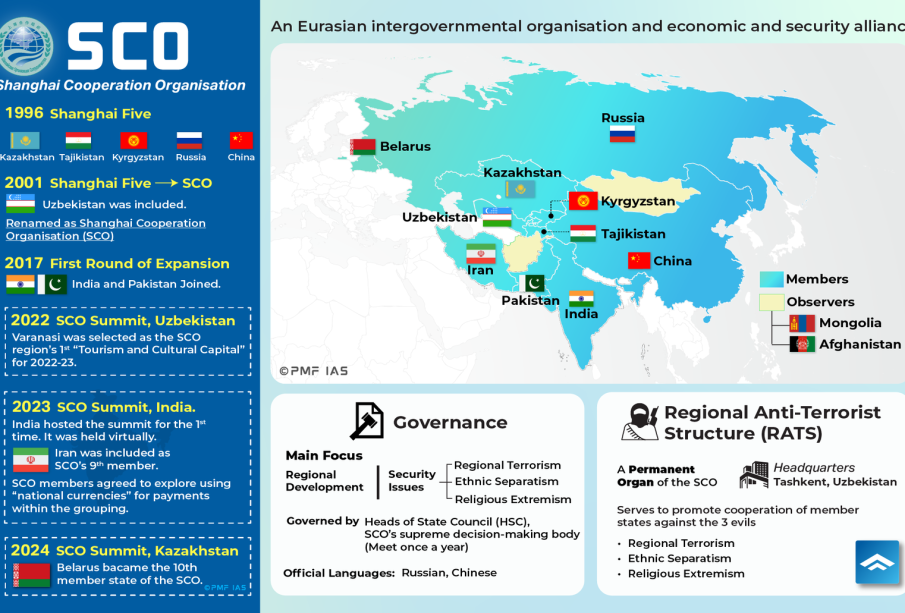Overview of SCO Members and Their Role in Regional Affairs

Introduction
The Shanghai Cooperation Organization (SCO) is increasingly becoming a pivotal platform for fostering cooperation among its member states in Central Asia and beyond. Established in 2001, the SCO brings together eight member countries, including India and Pakistan, to address regional security challenges, economic cooperation, and cultural exchange. With its growing influence, understanding the role of SCO members is vital for comprehending the dynamics of regional politics and economic relations.
Current Composition of SCO Members
The SCO currently consists of eight full members: China, India, Kazakhstan, Kyrgyzstan, Pakistan, Russia, Tajikistan, and Uzbekistan. These countries span across the vast Eurasian landscape, forming a strategic alliance that collaborates on various fronts including security, trade, and energy. In addition to the full members, the organization also includes four observer states (Afghanistan, Belarus, Iran, Mongolia) and six dialogue partners, making it one of the most significant multilateral platforms in the region.
Recent Developments
In recent months, SCO members have witnessed a series of summit meetings aimed at enhancing their strategic partnerships. The most notable was the 2023 SCO Summit held in New Delhi, where discussions revolved around regional security issues, particularly concerning the Taliban-ruled Afghanistan. Leaders emphasized the need for joint efforts in combatting terrorism and strengthening economic ties among member states.
Moreover, the economic initiatives, such as the China-led Belt and Road Initiative, continue to draw interest from SCO members as they seek to bolster connectivity and trade routes that could stimulate growth and development across the region. The impact of these discussions is expected to reshape economic landscapes and improve the livelihoods of millions.
Significance and Future Prospects
The strategic importance of SCO members cannot be overstated, particularly as they navigate the challenges posed by geopolitical tensions and economic disparities. The organization serves as a counterbalance to Western alliances and provides a platform for its members to unite on critical global issues, from counter-terrorism to sustainable development.
As the SCO continues to evolve, the future looks promising for deepening cooperation. With more countries expressing interest in joining the organization, the SCO could expand its influence even further. For readers, understanding the role and dynamics of SCO members is crucial for grasping the shifting landscape of international relations in Central Asia and beyond.









